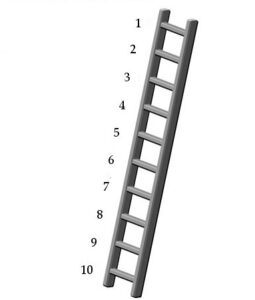If you follow VO discussion groups on social media, it’s hard to miss the urgent and sometimes panicked tone among VOs regarding the subject of AI or Artificial Intelligence voice over. There seems to be a pervasive fear that we are all about to be replaced….sent to the unemployment line by our new robot overlords…destined to go the way of the typewriter, VCRs, and my once-impressive head of hair.
Well, you may indeed go bald. There’s nothing I can do about that. But, I can give you reassurance that the age of AI voiceover may in fact be to the benefit of serious professional voice actors.
I understand the gut reaction of VOs to AI, but the fact is it’s an all-or-nothingburger that will either massively impact you or impact you virtually not at all, (and perhaps positively,) depending on how you are presenting yourself to the market.
Remember, AI can only ever be AS GOOD as we are. Never better. Cheaper, yes, but dynamically directable? Hardly.
That said, it is not to be dismissed, otherwise companies would not be pouring millions into the technology.
This technology is virtually guaranteed to ravage the lower end of the market. Clients buying on price generally don’t value quality, and they are going to FLOCK to AI because in their mind even $100 for a commercial VO or .03 per word for narration is TOO EXPENSIVE. If you are currently banging out ten jobs a day on Fiverr and making five figures from that and similar platforms you need to immediately prepare for a major disruption to your business model. Same for those relying on $100-$200 jobs on traditional P2P.
This technology will have little to no impact on the kind of work that goes through agents and managers, and limited impact on fair-rate work being hired by brand names or their intermediaries on P2P or through talent curation web search. These clients may occasionally be price sensitive, and don’t necessarily want to overpay, but price is a tertiary factor compared to quality.
Moreover, just as there are plenty of buyers of craft and luxury goods who will pay more for the personal touch and premium experience even when something from an assembly line can look and function almost as well, (think Rolex versus Timex,) so will there always be plenty of VO buyers who have the time, budget, and inclination to work with a real actor as opposed to an AI voice, and this will be a strong preference for them.
Some of these services are getting real voice actors to help them create AI versions of themselves, which will then be licensed and sold to third parties.
While licensing your voice for use by a third party is interesting, I think it will ultimately prove to be more noise than anything else for non-celebrity voice actors. I can see this paying something noticeable for a famous voice, but even for major VO-only players I don’t imagine this will ever amount to more than a few hundred bucks a month when you look at the actual dollar amounts these kinds of companies are talking about selling the end product for. Having been approached by a few of these ventures my analysis was that yes, there could be some small income from it, but hardly enough to justify the time to help them create an AI JMC, and also not worth the risk of illicit use.
Artificial Intelligence Voice Over Results
So, what will the end result of the arrival of the Borg be? Will we be assimilated?
Ultimately, I think this will lead to a needed rebalancing of the VO market to the benefit of pros, as there will soon no longer be any low-end of the market to undercut pro rates, that work having all been absorbed by AI and leaving buyers with the stark choice between cheap machines or paying humans what we are worth.
For hobbyists and lowballers, it will be a dark day indeed. For those dedicated to the craft, you may just find yourself more in demand than ever.
Of course, if you see Sarah Connonr……run!







